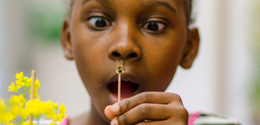Questioning whether or not dead bees including if bee sticks can sting comes up fairly often, and some folks also raise concerns about potential allergies.
Here’s how UW-Madison’s entomologist, Dan Young, explained to us about the potential of getting a bee sting from a dead bee:
I get this question once in a while, and the answer is clearly, NO. Dead bees/wasps can not sting. IF the stinger from a dead bee/wasp IS extruded (sometimes yes – sometimes no), it is as passive as a bristle.
“Stinging” involves a multitude of biotically coordinated reflexes and behavior. Remember, the stinger is just the needle of the “syringe” – it requires a hydrated gland of living tissue filled with venom, and a “plunger” (living muscular tissue surrounding the venom sac).
Being “stung” by a dead bee/wasp is generally a sign of entomophobia – and that is pretty common to at least a slight extent! A child screaming about something like the reported episode probably DID experience SOMETHING … but not a sting.
It is not uncommon when we are out “on the road” with live insects – like hissing cockroaches to have a child “screamer” who emphatically insists he/she was stung/bitten by the poor roach. In all likelihood, the child probably grabbed too tightly on a tibial spine, or a tarsal claw caught hold of the skin – hardly perceivable, but plays on ones phobia.
Making bee sticks is easy! Pollinating with bee sticks is not only safe and proven to be more effective than cotton swabs, paintbrushes, and other substitutes, it also gives us an important opportunity for students to learn about bees and their importance as pollinators. It may also help some students become less fearful around bees and other insects.
Learn more about bee sticks and pollinating Fast Plants on our website here. And we hope that you’ll share any resources you use during pollination to help students make real-world connections between pollinating with a bee stick and ecology and/or our current concerns about declining bee populations.


